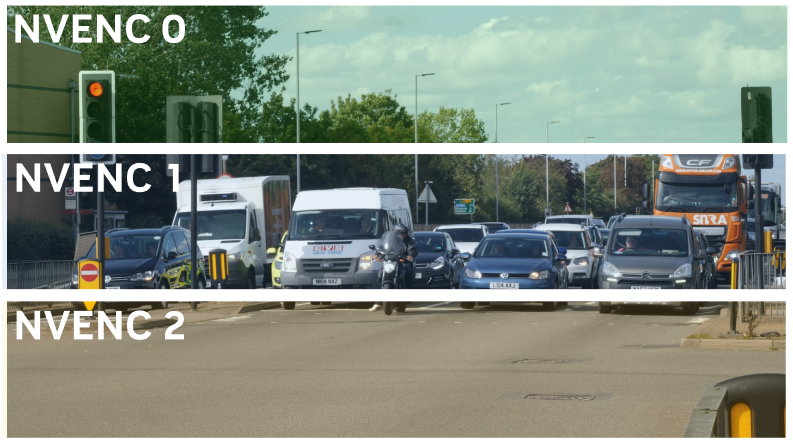Low hanging fruit, disable it & try again.
08:37:18.688: Hardware-Accelerated GPU Scheduling enabled on adapter!
Not sure if that SFE that's enabled on the AV1 encode is causing trouble or even needed but if it continues to freeze, try disabling it. Looks like it's meant to be used with 4/8k anyway.
09:21:33.605: codec: AV1
09:21:33.605: rate_control: CBR
09:21:33.605: bitrate: 25000
09:21:33.605: keyint: 120
09:21:33.605: preset: p7
09:21:33.605: tuning: hq
09:21:33.605: multipass: fullres
09:21:33.605: profile: main
09:21:33.605: width: 2560
09:21:33.605: height: 1440
09:21:33.605: b-frames: 2
09:21:33.605: b-ref-mode: 0
09:21:33.605: lookahead: false (0 frames)
09:21:33.605: aq: false
09:21:33.605: split encode: 15
Capturing video footage and playing games at 8K resolution with 60 frames per second (FPS) is now possible, thanks to advances in camera and display technologies. Major leading multimedia companies…

developer.nvidia.com
The NVIDIA Video Codec SDK provides a comprehensive set of APIs, samples, and documentation for fully hardware-accelerated video encoding, decoding, and transcoding on Windows and Linux platforms.

docs.nvidia.com
